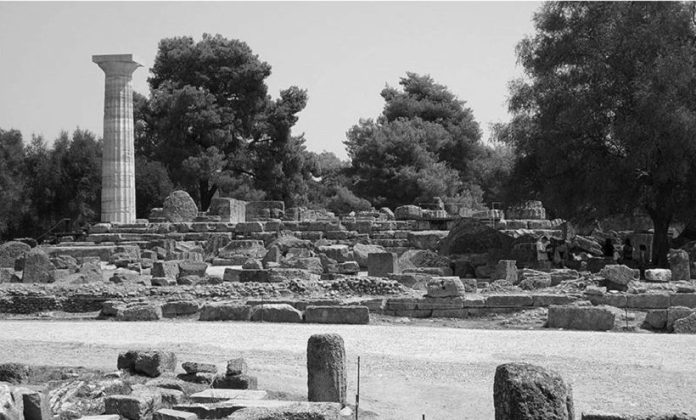The Olympic Games stand as one of the most enduring institutions of antiquity. Spanning a remarkable 1,169 years, they were held every four years from 776 BC until at least 393 AD, comprising a total of 293 Olympiads. These games were not merely athletic competitions but a profound expression of the spiritual, social, and cultural fabric of ancient Greece.
The Religious and Social Significance
Ancient Olympia, dedicated to Zeus, the king of the gods, was the heart of the Olympic Games, the most significant religious festival of ancient times. The Games were a sacred ceremony held every four years at the Sanctuary of Olympia, nestled in the lush valley formed by the Alpheus and Cladeus rivers. This festival included sacrifices, rituals, and a multitude of cultural events, all aimed at honoring Zeus.
Evolution of the Olympic Games
From their inception, the Olympic Games gained widespread acclaim and recognition across the Greek world. Their regular occurrence fostered pan-Hellenic unity, as athletes from all Greek city-states converged in Olympia to compete, venerate the gods, and showcase their skills and courage. This gathering was a testament to the shared cultural and religious values that bound the Greek world together.
The Athletic Venues and Infrastructure
The Sanctuary of Olympia boasted a variety of facilities for the games. Key structures included stadiums, gymnasiums, and wrestling schools (palaestrae) which served as the hubs for athletic activities. Additionally, religious buildings like the Temple of Zeus, which housed Phidias’ chryselephantine statue of the god—a marvel considered one of the Seven Wonders of the Ancient World—were integral parts of the sanctuary.
Cultural and Artistic Legacy
Ancient Olympia was not just a center for athletics but also a beacon of art and culture. The Olympic Games inspired artists, poets, and philosophers, significantly contributing to the flourishing of Greek culture. The games were a wellspring of inspiration for art, literature, and philosophy, and the victors were celebrated as paragons of virtue and bravery. Their triumphs and tales were immortalized in various forms of art, leaving a lasting legacy that continues to influence the world today.
In Conclusion
Ancient Olympia was a multifaceted epicenter where athletic prowess, religious devotion, and artistic expression converged. The Olympic Games transcended mere sportsmanship, encapsulating the spirit and unity of the Greek world, and leaving an indelible mark on history and culture.






































